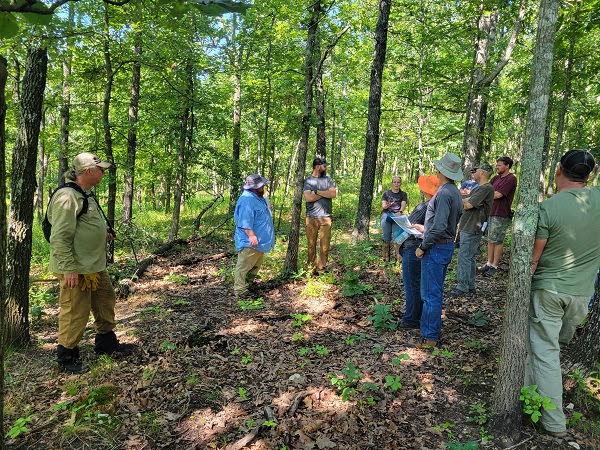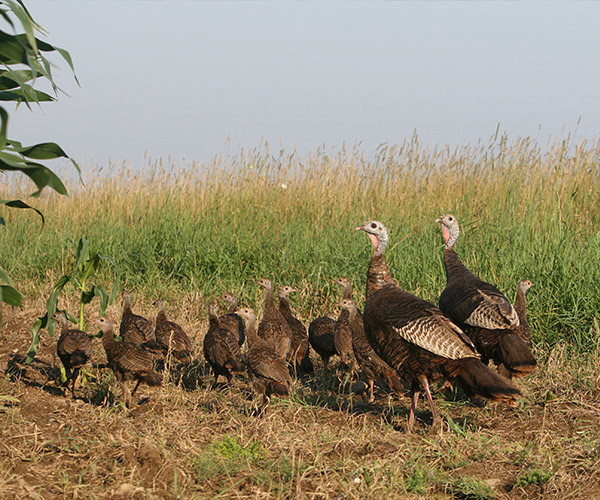Missouri Workshop Shows Landowners Importance of Active Management

Private landowners from Missouri recently attended a workshop to learn about the importance of private land habitat management and the programs available to facilitate it.
The NWTF recently partnered with the Missouri Department of Conservation to host 17 private landowners on a field-tour workshop in Wright County, presenting information about active management and its benefits for private landowners.
“While the terms forest and woodland are often used to mean the same thing in everyday language, they are two distinct habitats,” said Will Rechkemmer, NWTF Missouri wildlife biologist. “Forests have a predominately closed canopy and allow little light to reach the ground. Woodland habitats, however, have an open canopy that allows sunlight to reach the forest floor and allows native grasses and wildflowers to flourish, creating the early successional habitat that wild turkeys and many other species need. It enhances overall ecological value while providing landowners with better wildlife viewing and hunting opportunities. Restored woodlands also provide high quality nesting and brooding cover for wild turkeys, which is severely lacking across the landscape.”
Additional benefits of active management include increased soil health, biodiversity and resiliency to natural disturbances, such as drought and wildfire.
Participants were taken through three stages of management progression on a loop through the Wright County property. They began the tour in an unmanaged area, typical of many landowners’ properties in Missouri, predominately a closed canopy without much beneficial understory growth.
“While forested areas have their role in ecosystems, active management prevents a property from being a monoculture; having a mosaic of habitat types such as mature forest, woodlands and early successional habitat is ideal,” Rechkemmer added.
Attendees then went to an area where prescribed fire had been used regularly but had yet to be thinned of undesirable tree species. The tour ended in an area where both prescribed fire and thinning practices were implemented, an area heavily used by wildlife.
Will Rechkemmer and MDC Private Land Conservationist Danita Rechkemmer also answered questions and highlighted cost-share options for participants to do similar work on their properties.
The NWTF conducts private land work in numerable capacities. This includes work done in states across the country through NWTF wildlife biologists and foresters who are a part of the NWTF’s National Forestry Initiative. These biologists and foresters help landowners come up with professionally developed land management plans that are suited to their specific goals. They also provide landowners with resources and help them enroll in state and federal programs that facilitate this essential work.
For instance, programs private landowners can enroll in include the USDA’s Conservation Stewardship Program, Environmental Quality Incentives Program and Farm Service Agency assistance programs. These programs provide financial assistance to landowners and help them improve their property, whether it’s a farm, a forest or a mixture of both.
Working with private landowners through these and other programs helps benefit habitats otherwise inaccessible to management. This allows for significantly more contiguous habitat for wild turkeys and other species, not to mention making the landowner’s property safer, more resilient and more of an asset. It’s a win for wildlife and everyone involved.
National Wild Turkey Federation
PO Box 530
Edgefield South Carolina 29824
United States






